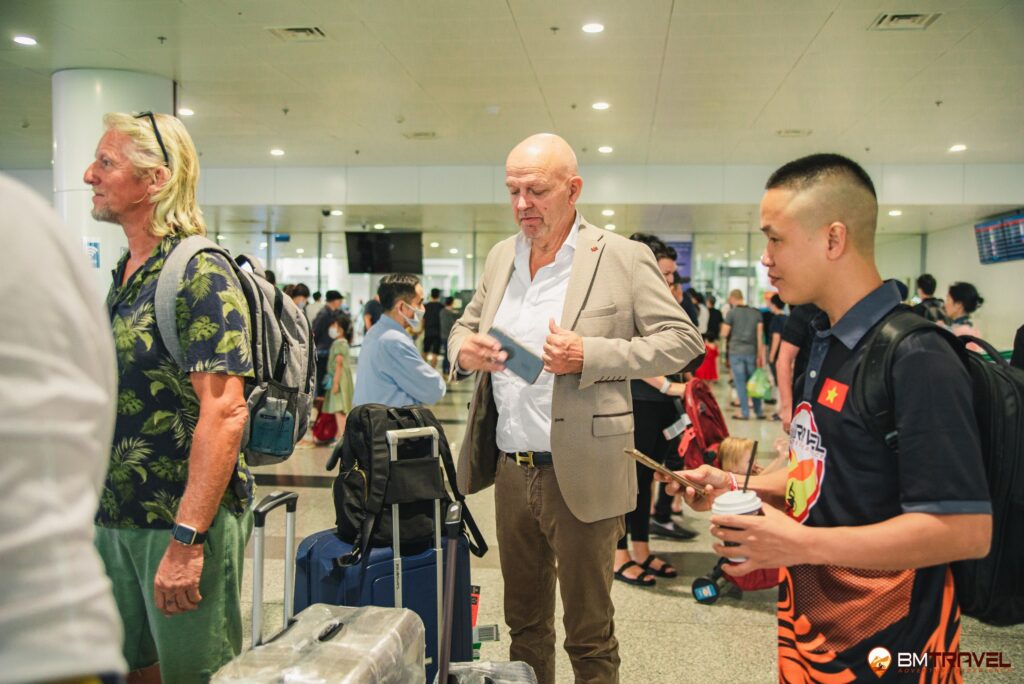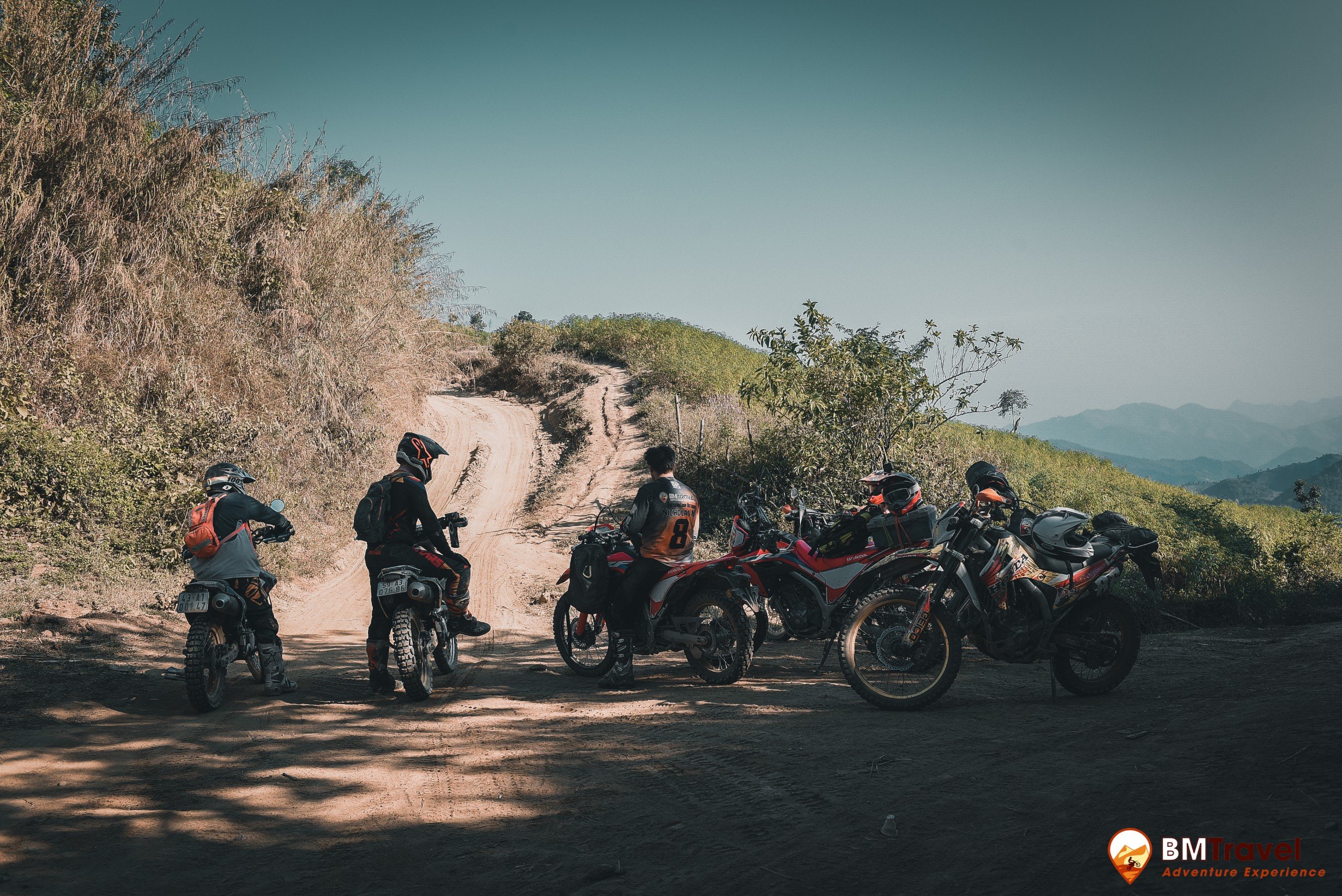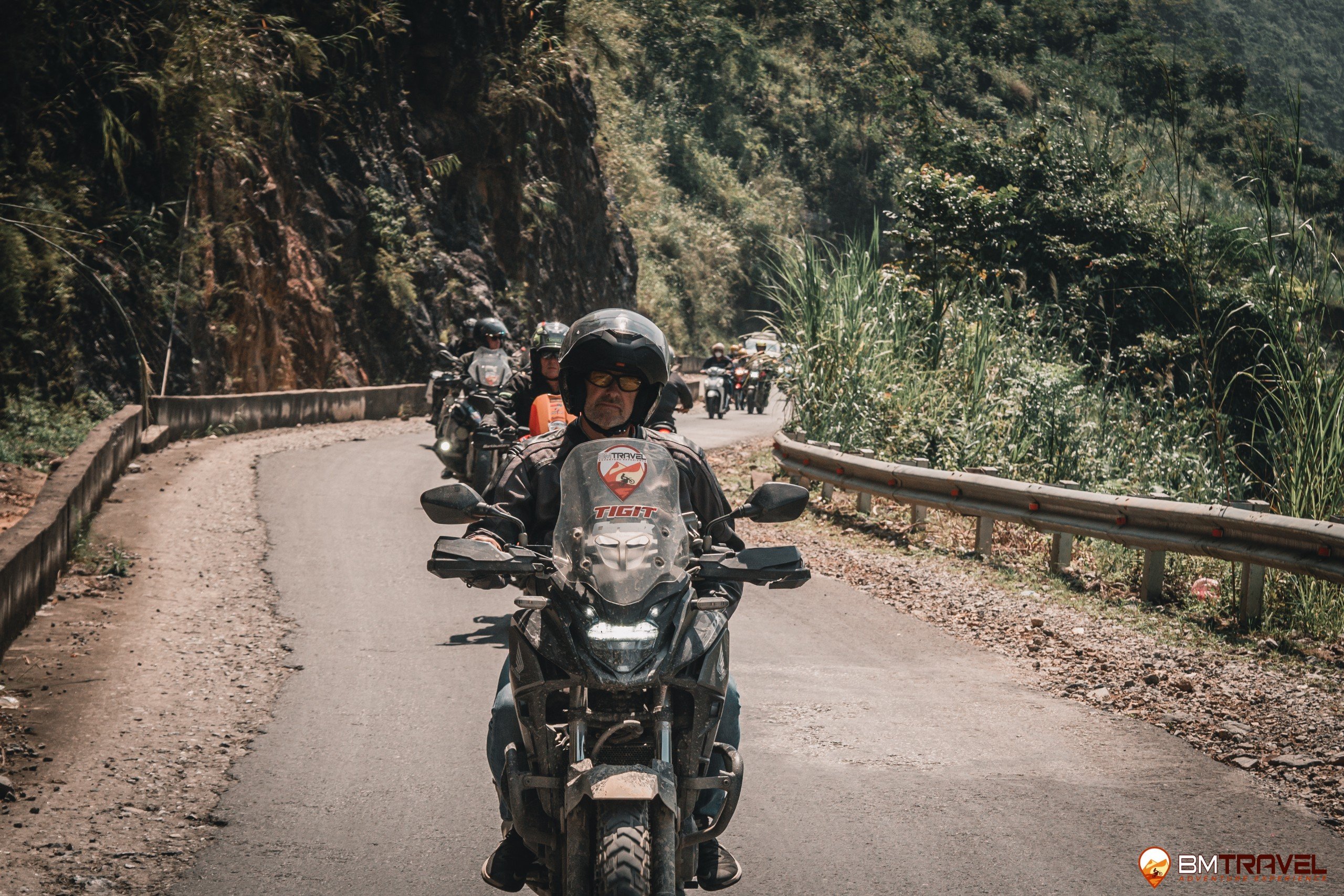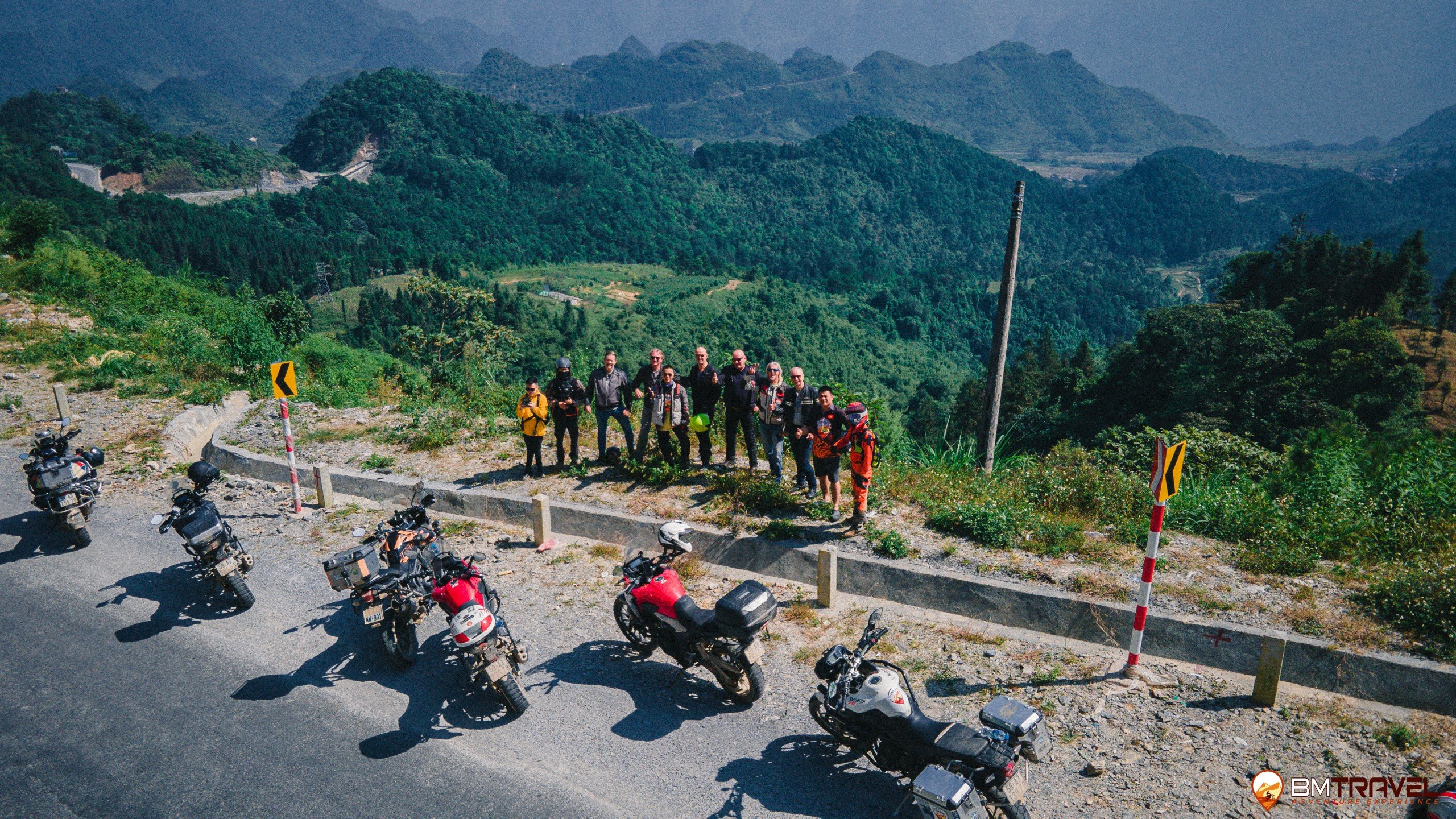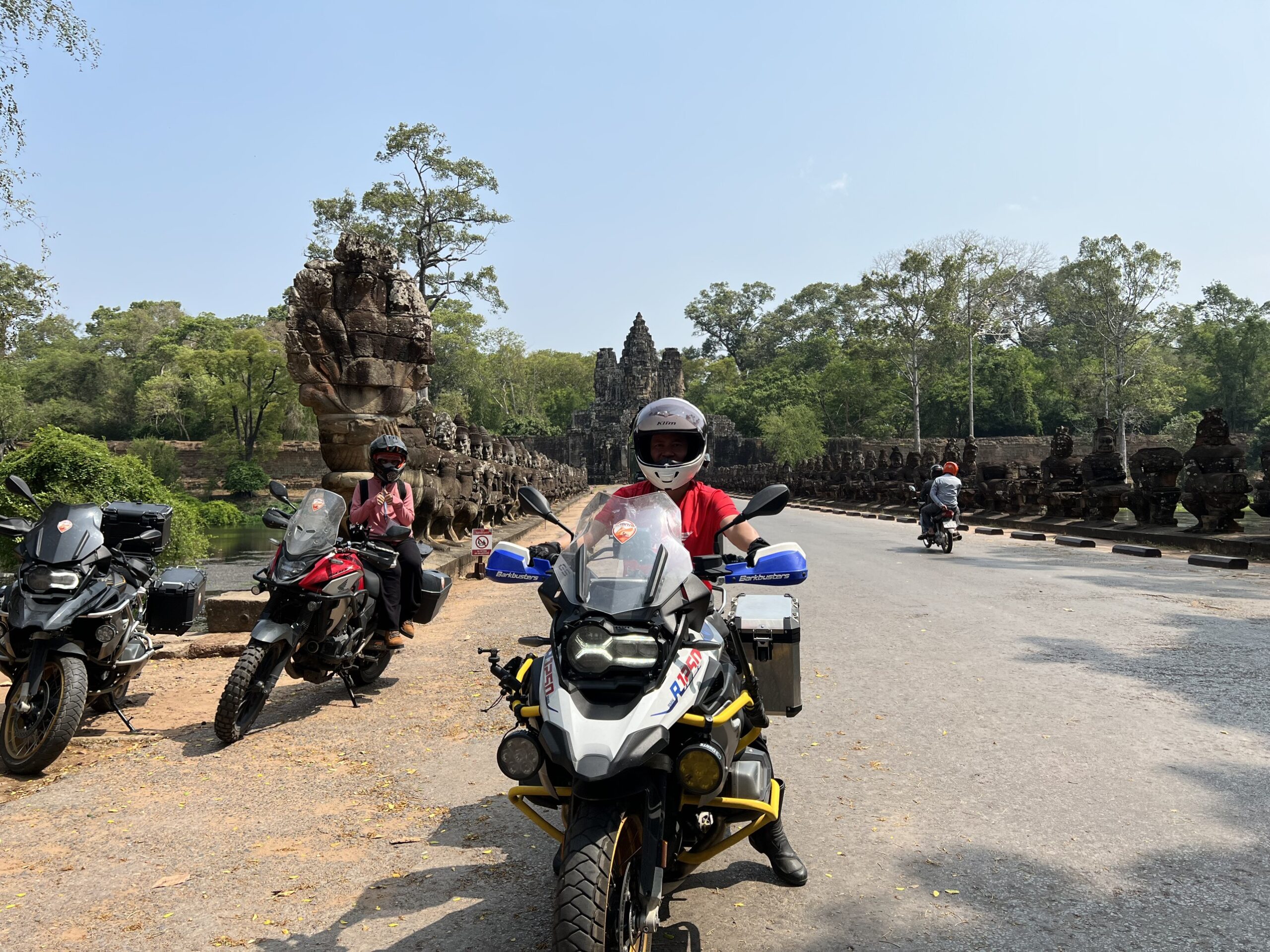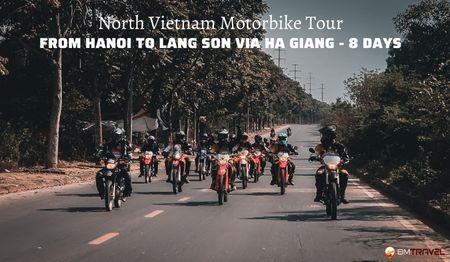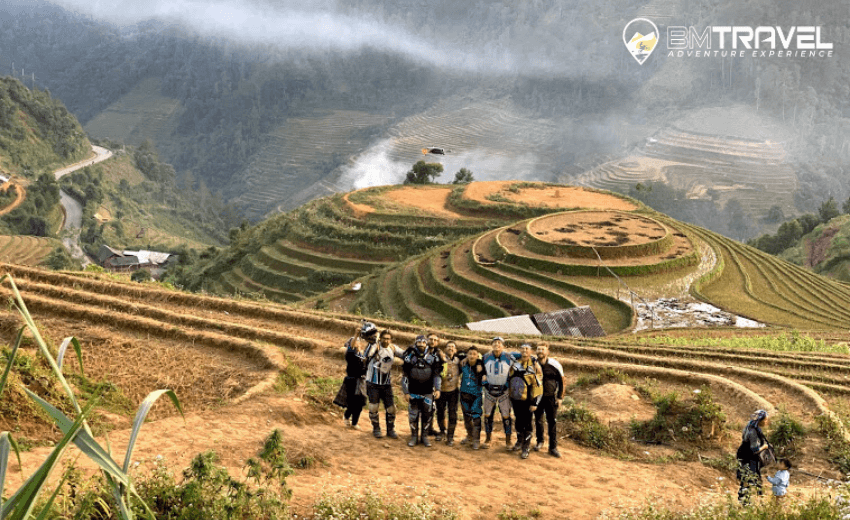VIETNAM MOTORBIKE TOURS
We are enthusiastic, multilingual, and well-experienced Vietnamese people having an endless passion for motorbikes and taking adventures. We have been organizing off-road and cross-border Vietnam motorbike tours (Vietnam motorcycle tours) for 10 years now and we know how to bring the most stunning experiences for each customer.
Our goal has always been the same: to give our customers the chance to experience Vietnam in a special and unusual way. Therefore, all of our motorbike tours are designed to stay away from mass tourism, help you understand deeply the cultures, be closer to local people, and on top of that, gain the best Vietnam motorcycle touring experiences that you will never forget!
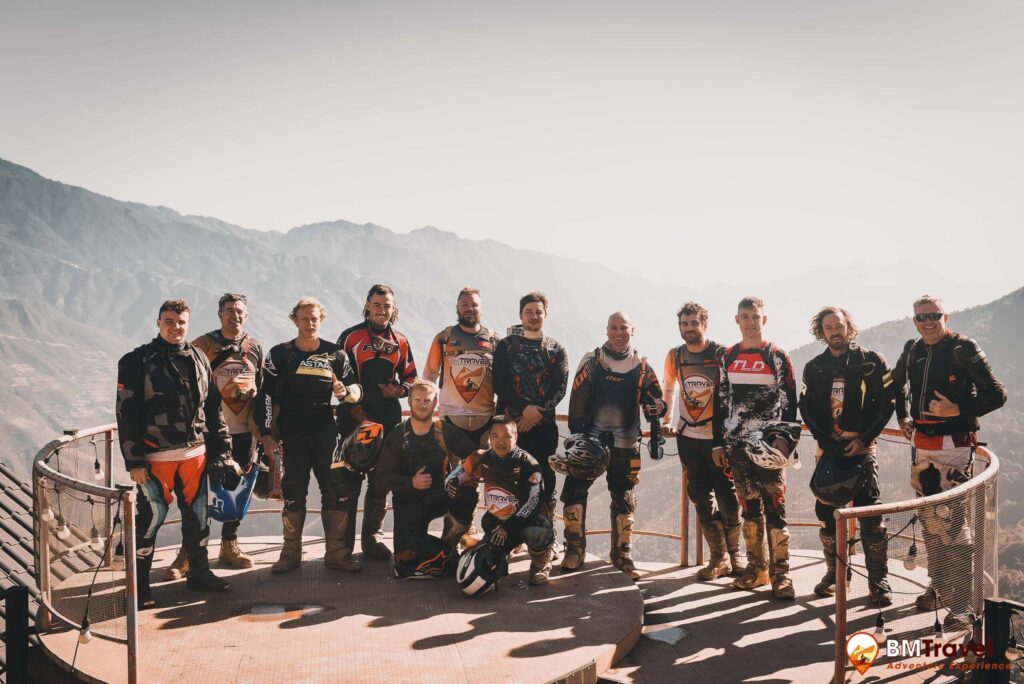
Vietnam Motorcycle Tours
Off-road Vietnam Enduro Tour in Northern provinces- 4 Days
The 4-day Northern Vietnam enduro tour gives you a new perspective of Vietnam that is quite different from what you have seen from popular travel magazines.
Vietnam Motorcycle Trip from Hanoi to Mai Chau - 3 days
Vietnam Motorcycle Trip from Hanoi to Mai Chau - 3 days will take you to beautiful destinations, meet hospitable local people and get off-the-beaten paths.
Northwest Vietnam Motorbike Tour from Hanoi to Nghia Lo - 5 days
Traveling on the 5-day Northwest Vietnam Motorbike Tour from Hanoi to Nghia Lo takes you through this fabulous land which is home to various ethnic minorities.

DIRT BIKE TOURS
Best Hanoi Motorbike Tours | Hanoi Motorcycle Tours
Crossing Vietnam on two wheels's a great idea. Long-distance rides and enjoying distinctive cultures in every single place will be perfect. Leisurely coastline ride or adventure mountain trip is also journeying you will become a landmark of your life.
Central Vietnam Motorcycle Tours
Ho Chi Minh trails, Hai Van Pass, Beautiful Beaches, Relic Sites, DMZ, and ethnic cultures are all gathered here!!
Northeast Vietnam Motorcycle Tours
It cannot describe Northeast by even a word. Mother Nature has favored this area so much. Amazing landscapes, marvelous passes along the Nho Que emerald river, and unique ethnic culture will blow your mind in less than one second.
ENDURO TOURS
Cross Country Tour - Ho Chi Minh Trail Motorcycle Tours
Ride through the great Truong Son Mountains, rustic countrysides, picturesque rice fields to learn more about Vietnamese history.
Off-road Vietnam 4x4 Tours
Explore Vietnam in a different way, avoid the tourists, overpriced attractions, and get off the beaten path with Vietnam 4x4 tours.
BORDER CROSSING TOURS
Asian Bike Tour
We provide a variety of itineraries on our motorbike tours in Asia to accommodate all preferences and skill levels.
BMW Motorcycle Tours
Every country has its unique culture that makes us excited. Not only about local life but also religions in Asia of each country are also totally different.
Cambodia Motorbike Tours
Cambodia has long been an ideal place for those who want to travel by motorbike at a low price.
BEST-SELLING VIETNAM MOTORBIKE TOURS
North Vietnam Motorbike Tour from Hanoi to Lang Son via Ha Giang - 8 days
This 8-day North Vietnam Motorbike Tour from Hanoi to Lang Son via Ha Giang promises to be one of the most fulfilling experiences you do on your trip to North Vietnam.
North Vietnam Motorbike Tour from Hanoi to Halong Bay - 10 days
Our 10-day North Vietnam Motorbike Tour from Hanoi to Halong Bay is a great chance for you to discover well-known landmarks in Northern Vietnam and Southeast Asia
North Vietnam Motorbike Tour from Hanoi to Ba Be - 8 days
North Vietnam Motorbike Tour from Hanoi to Ba Be in 8 days not only impress riders with the majestic nature but also the depth of culture, the diversity of cuisine
Why choose Us
Local Experts & Dedicated Support
Well-experienced tour guides and helpful staff, with the support of Ford Ranger Wildtrak 4x4.
Updated & Well- maintained Motorcycles
A variety of beautifully maintained ATVs, Dirt Bikes, of the latest versions.
Best Price Guarantee
Best motorbike tours price and services with equivalent quality.
Good Accommodation
Eat and sleep in the best locations. We'll take you closer to the country without skimping.
Scenic Routes & Tailor-made Itineraries
Over 100 safe and scenic motorbike routes and customizable itineraries to your liking.
Great Reviews on TripAdvisor
99% satisfied customers on TripAdvisor from over the world.

The Press talk about us and Customer Testimonials

“Binh Phi is the proud owner and founder of the Vietnam Motorbike Tours. With a great passion for travel, Binh soon set the goal to become a tour guide so that he had the chance to travel all over Vietnam for free and introduce his beautiful country to international friends. He then realized that though Vietnam had so many things to offer to tourists – from gorgeous landscapes, excellent cuisine to unique cultures and hospitable people, most travel agencies hadn’t yet tapped the full potentials of Vietnam’s tourism and been able to offer a truly authentic and diverse travel experience to international tourists…”
BINH PHI
OWNER – FOUNDER DETAIL
BM TRAVEL'S LEADING EXPERTS
Read More
MR. TU TRAN
ENDURO T.GUIDE

Mr. Binh Phi
CEO

Mr. Nam Kiu
CEO

Mr. Que Papai
CMO
Blog
Best Motorcycle Tents Tips For Camping On Two Wheels
In Vietnam, the demand for motorcycle camping to explore the beauty of nature is
Coronavirus spreads to more countries: Should we travel to Vietnam this time?
Are you about to travel to Vietnam and worried about this issue? Don't worry;
Why Is Homestay in Vietnam An Excellent Choice for Adventure Holidays?
Suppose you desire to discover traditional cultures and enjoy unique specialties in the remote
Top 6 Exotic Foods in Northwest Vietnam You Must Try Once in Your Life
When taking a trip to Northwest Vietnam, you have a precious chance to not
In-depth review of Sapa Motorbike Tour 3 Days 2 Nights – Amazing Life Experiences
First trip to Sapa? Do not worry. You are in good hands because today,
Is Vietnam Water Safe To Drink? Commonly Asked Questions
Many tourists ask: How is Vietnam's water when traveling to Vietnam? So now, we




